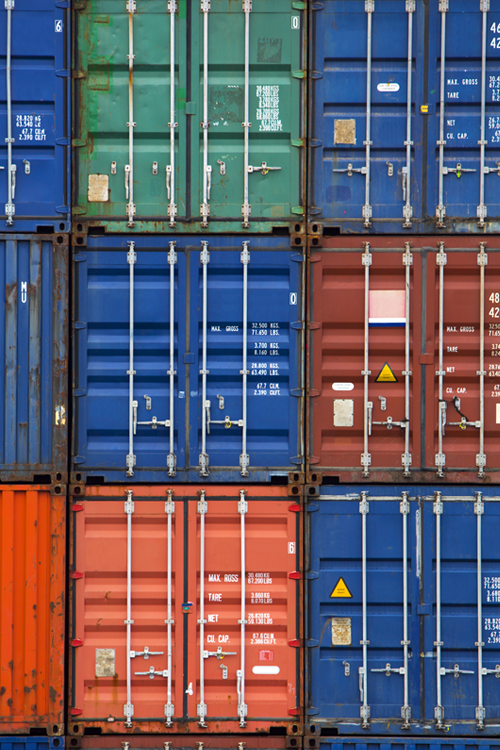Readers may be surprised to learn that an unheralded labour law case is now awaiting appeal before the Supreme Court and is poised to become one of the most significant legal decisions affecting Canadian forwarders. On the surface, the dispute is between management at the Calgary office of a national transportation concern. At issue, however, is whether companies that have a merely local physical presence and operations, but that undertake to provide transportation services that are national or international in scope, are local creatures governed by provincial statute or national undertakings subject to the purview of the Federal government. If the Supreme Court tackles the issue as I have described it, it is one that will affect virtually every forwarder, large and small.
Factual Background
Teamsters had attempted to unionize Fastfrate employees in Alberta, Saskatchewan, and Manitoba locations pursuant to the (Federal) Canada Labour Code. Fastfrate’s Calgary employees already had a bargaining agent certified pursuant to provincial statute (the Consolidated Fastfrate Transport Employees Association of Calgary). Fastfrate resisted the Teamsters certification efforts, taking the position that the operations were local and subject to Provincial, not Federal, legislation, and therefore the provincially certified Calgary unit would remain in place and the Teamsters’ application under the federal scheme with respect to the other locations would fail.
Decisions Below
The Alberta Board ruled that Fastfrate was a single undertaking connecting Alberta to other provinces and therefore subject to Federal jurisdiction: the Calgary Employees Association was out and the Teamsters were in throughout the three provinces.
On review, a Judge found that Fastfrate was not sufficiently involved in interprovincial transport (its carrier operations were purely local delivery) and that an overarching control structure was not sufficient to make it a Federal undertaking. The provincial Employees Association was back in, and the other provincial offices remained non-unionized, the Teamsters left out in the cold.
On appeal to the Alberta Court of Appeal the Board’s decision was restored. Fastfrate appealed, and the corpse of Jimmy Hoffa spun once more.
The Supreme Court has agreed to hear the appeal and to hear the following constitutional question:
Is the Calgary operation of Consolidated Fastfrate Inc. a matter of provincial jurisdiction pursuant to s. 92(10) of the Constitution Act, 1867 or does it fall within the exception granting exclusive jurisdiction to the federal government in s. 92(10)(a)?
Legal context
Under the Canadian Federal system, provinces retain authority in most areas, including generally over “property and civil rights” and “local works and undertakings” other than those reserved to the Federal government. In transport, importantly, the Federal government enjoys clearly delegated constitutional jurisdiction over admiralty, shipping, navigation, railways, aviation, and other undertakings connecting the various Provinces. The scope of this authority was clarified in the 1955 decision of the Supreme Court in the Stevedores case, which confirmed that Stevedores were an integral element of the carriers’ operations and captured by the Federal authority over steamship lines.
Forwarders, however, have remained in a ‘grey area’ and have used this to their advantage. Generally, disputes over the appropriate jurisdiction have been opportunistic, with a forwarder resisting imposition of regulations, penalties, or certification of a union, by taking the position that the government imposing or certifying lacked authority. These positions are not principled: in fact, two cases described below involve the same forwarding operation taking contrary positions, first claiming to be local to avoid a federal union certification and then claiming federal status to avoid the application of penalties under a provincial regulatory scheme.
The results have been similarly scattered. In a leading 1975 case, a Union attempted to certify a local office (constituted as a separately incorporated subsidiary) under Federal legislation; the employer resisted, claiming the operations were purely local. Ultimately, the Court accepted that the forwarder did not itself undertake any interprovincial activity, but merely collected interprovincial cargo on behalf of its local customers and then consigned it to the railway, which carried it interprovincially. The Court could not accept that anyone contracting with the railroad would, by virtue of that contractual relationship, become part of an interprovincial undertaking. The forwarder had established that it was a local operation, and the Union was out.
Six years later, the parent company of that local forwarder was once again before the Courts, but now taking the position that it was a national undertaking in order to resist the imposition of fines under provincial regulations. The Court relied on the 1975 decision, finding the forwarder to be local in spite of its interprovincial undertaking in respect of transport, and the provincial regulatory convictions were upheld.
The law was not to remain certain for long: the opposite conclusion was reached a year later by the Ontario Court of Appeal. There, a forwarder was in the business of arranging Ontario-California truck transport. Although the truckers were independent operators appropriately licensed for the purpose, the Court found that the forwarder was also engaged in an international undertaking – apparently by virtue of contracting with such a carrier, a proposition that the Court had specifically rejected in 1975. This decision was strengthened a year later, when the Court similarly held that a forwarder concluding contracts as agent in the name of its customer could not thereby avoid the implication that it was engaged in an interprovincial undertaking: going forward not only contracting but, apparently, forming a contract on behalf of a principal for an interprovincial purpose would be sufficient to expose the forwarder to the federal jurisdiction.
The upcoming decision in Fastfrate
As the Supreme Court has accepted the appeal, it is safe to say that they plan to resolve this conflict in the jurisprudence. It is not possible to say how they will resolve it, but there are indications.
In 1990 the Court considered the question in the case of UTU Transport. There, the Court considered a local rail spur that had been purchased from on of the national railways. The new owners operated the line for collection of grain. The rail remained connected to the national network, through a switch controlled by the national railway. Indeed, the ultimate purpose of the local rail was to connect grain elevators with the national distribution system. A majority of the Court found the operation was purely local and not subject to Federal regulation.
Based on this decision, it would appear that the Court wishes to clarify what indicia are required for an undertaking to outgrow its local character and, in particular, how we can make that assessment in the case of businesses with very little ‘physical’ presence at all. In the case of the railway, the Court easily distinguished between the limited nature of the physical operations, and the contracts that the undertaking formed with other parties in order to obtain an objective that was ultimately national (and beyond the scope of the railway’s local operations). In my view, the Ontario Court of Appeal has gone too far in extending the scope of the inquiry to these intangible contractual relationships, probably because there were no substantial physical operations to provide an obvious local anchor. If an undertaking exists to form contracts with others, then why not allow the scope of those contracts to determine the scope of the undertaking?
The answer to ‘why not’ is of course that it would extend the Federal sphere substantially and in a manner inconsistent with the Supreme Court’s reasoning in Stevedores and UTU. While the Court may well describe an inquiry that will in fact capture the operations of many forwarders, we can expect them to severely curtail the inquiry that is presently the law in Ontario, and to affirm that contracting with a national carrier cannot, in and of itself itself, be sufficient evidence that an undertaking is truly national.



